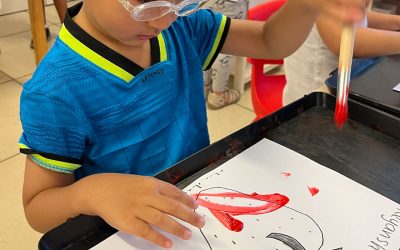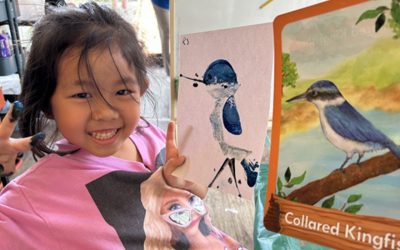Is it necessary for preschool-aged children to start learning mathematics in kindergarten? That is an important question for many young parents.
As a parent, you want your child to have a strong foundation in all areas of learning, including mathematics. Maths skills are not only important for success in school — they also play a crucial role in our everyday lives. From counting and measuring to problem solving, mathematics is an essential skill that should be taught and nurtured from a young age.
In this article, we’ll take a closer look at why it’s important for kindergarten children to learn maths, the difference between mathematics and numeracy, and the teaching methods used at Heartfield Kindergarten to help your child develop a love for numbers.
Why Kindergarten Maths Matter
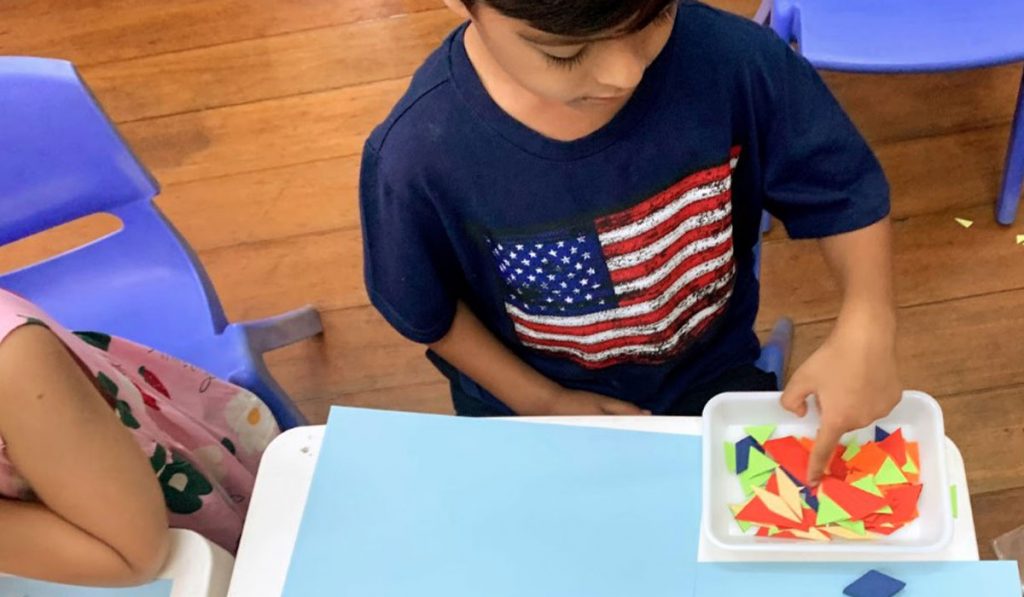
Let us first look at the importance of a kindergarten maths education.
In preschool, children are constantly constructing their understanding of mathematical concepts in their daily lives. They use what they already know about the world, such as shapes, numbers, and space, to build a foundation for their mathematical knowledge.
However, kindergarten maths isn’t just about building upon these concepts. It is also about developing critical mathematical thinking skills, such as reasoning and problem-solving. This helps to foster a lifelong love and interest in maths in any child from an early age.
Having a positive disposition towards mathematics is crucial for success in future maths classes and in life. By ensuring that your child receives a strong foundation in maths in their early years, you are setting them up for success and a lifelong love of learning.
What is the Difference Between Maths and Numeracy
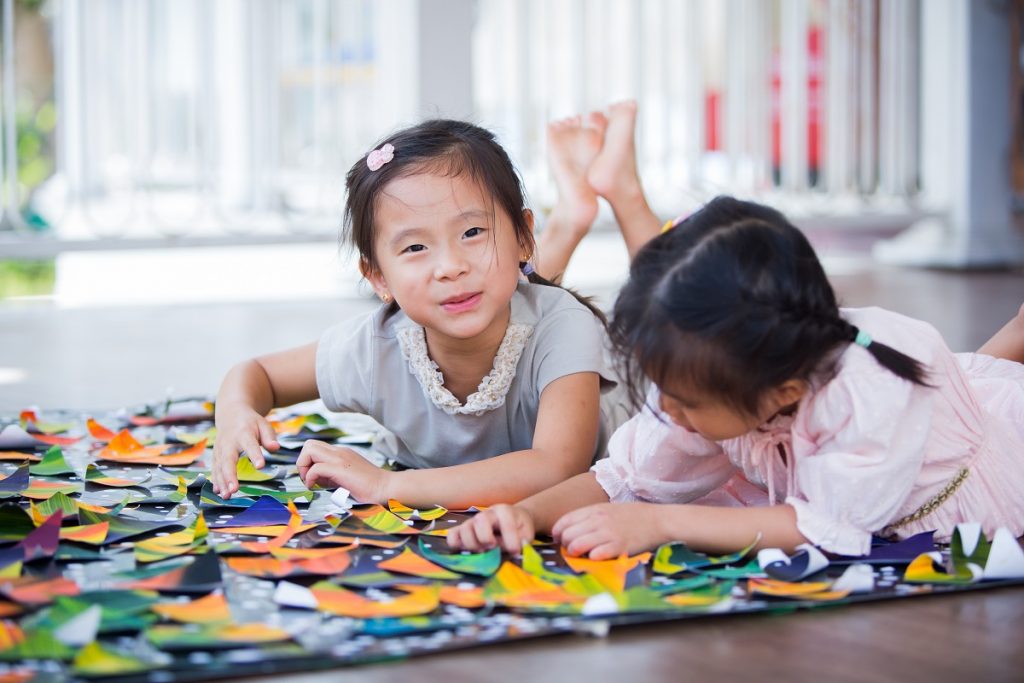
Maths and numeracy are related but distinct concepts. While they are used interchangeably, a simple distinction you can make is that maths refers to the calculation of numbers while numeracy deals with logical thinking and reasoning.
Mathematics is a broad field of study. It encompasses a wide range of concepts, such as numbers, operations, geometry, algebra, and calculus. Maths not only includes computation but the development of mathematical reasoning, problem-solving skills, and understanding of mathematical concepts.
Numeracy, on the other hand, refers to the ability to understand and use numbers and mathematical concepts in everyday life. This includes skills such as being able to read and interpret numerical information (e.g. bus numbers), perform basic arithmetic operations (count how much money to pay for a meal), and solve simple mathematical problems.
Thus, you can consider mathematics to be a broader, more theoretical field of study, while numeracy is the practical application of mathematical knowledge and skills in everyday life.
Types of Maths & Numeracy Teaching Methods in Kindergarten
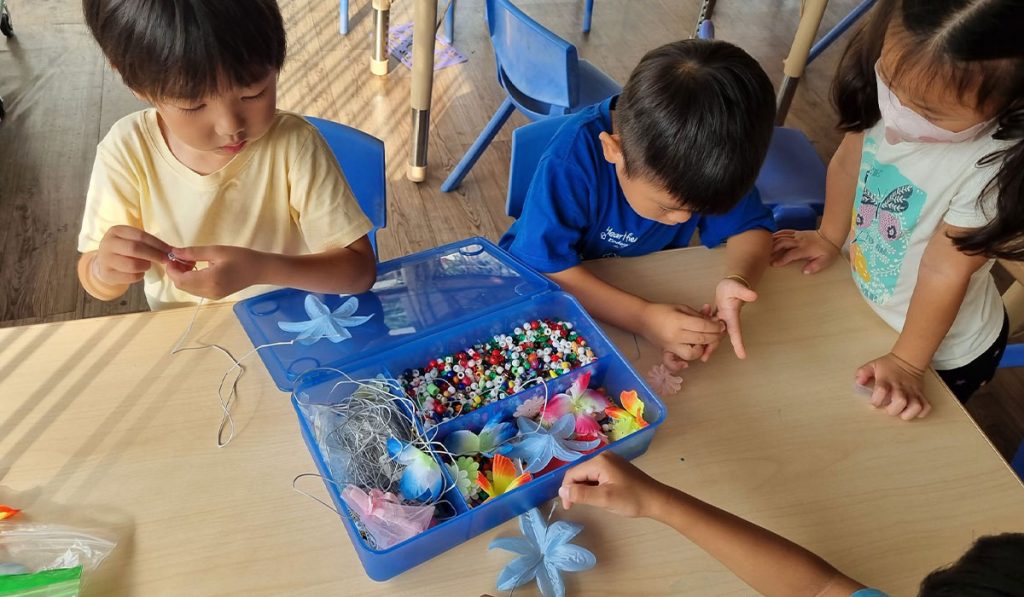
As a parent, it’s important to understand the various methods used to teach maths and numeracy in kindergarten.
Hands-on learning is often adopted in kindergartens. Here, children use manipulatives like blocks and beads to learn about addition and subtraction.
Visual representation is another effective method, where pictures, diagrams, and charts help students grasp mathematical and numerical concepts and solve problems.
Most of us are familiar with rote or drill-based learning. This involves the memorising of mathematical formulae (remember your time tables?) and is often dreaded by children and adults alike.
Inquiry-based learning, on the other hand, encourages children to explore mathematical concepts and apply them to solve problems on their own. This is increasingly becoming the best way for children to learn maths.
Storytelling is another useful technique, as it makes mathematical concepts more relatable by using everyday scenarios. For example, a story about teddybears going on a picnic can help teach children about sharing and division.
These are just a few of the methods used to teach maths and numeracy in kindergarten. By understanding these methods, you can support your child’s learning and foster their love for mathematics at home.
What Inquiry Based Maths & Numeracy Lessons in Kindergarten Look Like
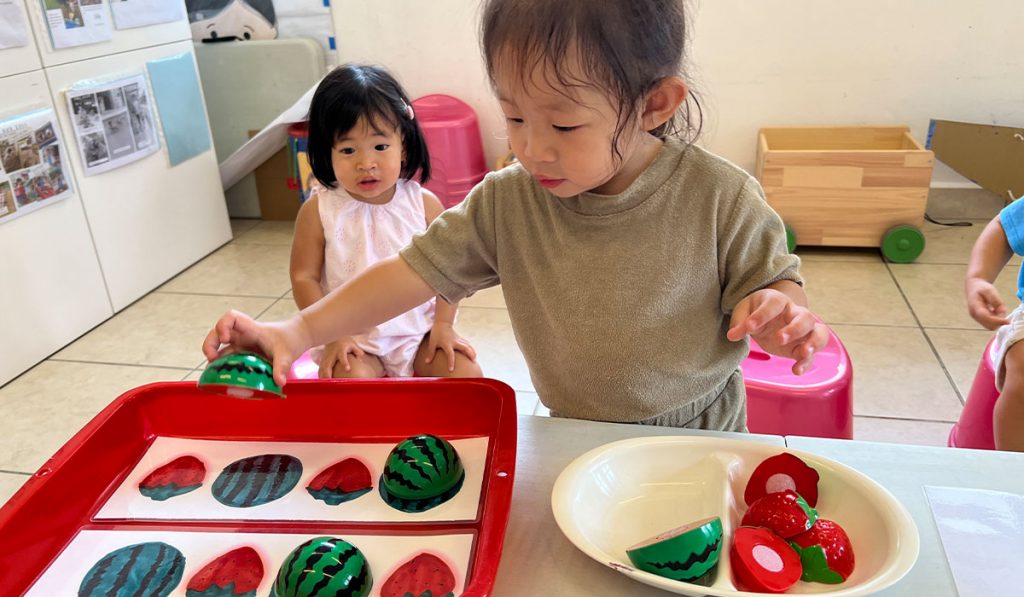
Inquiry-based maths and numeracy lessons in kindergarten are all about guiding students through the process of discovering numerical concepts for themselves. Rather than simply being told information, children who discover these concepts on their own can better internalise and retain their learning.
Rather than tell students that “2 plus 2 is 4”, the teacher might present the question of how to make 4, and the child would use manipulatives to explore different ways to make 4, such as 3 + 1 or 2 + 2.
If the child’s solution doesn’t equal 4, the teacher can encourage the child to think about ways to “fix” this. This type of hands-on discovery helps the child own their learning, build confidence, and solidify their understanding of how numbers work.
Inquiry-based lessons also involve asking the right questions and providing opportunities for students to apply their numerical thinking. These lessons should be relevant, real, and relatable to the students, based on their prior knowledge and understanding.
For instance, the class might graph their favourite fruits to learn about data analysis, or measure their height using non-standard units. By using real materials and manipulatives, the lessons can engage the whole child, including their senses and cognition.
When learning about themselves, the class might also read and follow the steps of a recipe, look at the calendar to sequence the activities of the week, or use found objects to create shapes and forms. These lessons provide context and make the learning relatable, which helps engage the children and makes the learning experience more meaningful.
In short, inquiry-based learning is a great way to help your child gain a better understanding of numerical concepts. These lessons can be fun and engaging for students — they get to explore, discover and apply numerical concepts in a hands-on way.
Nurturing Mathematicians — Not Calculators: How Heartfield Does It
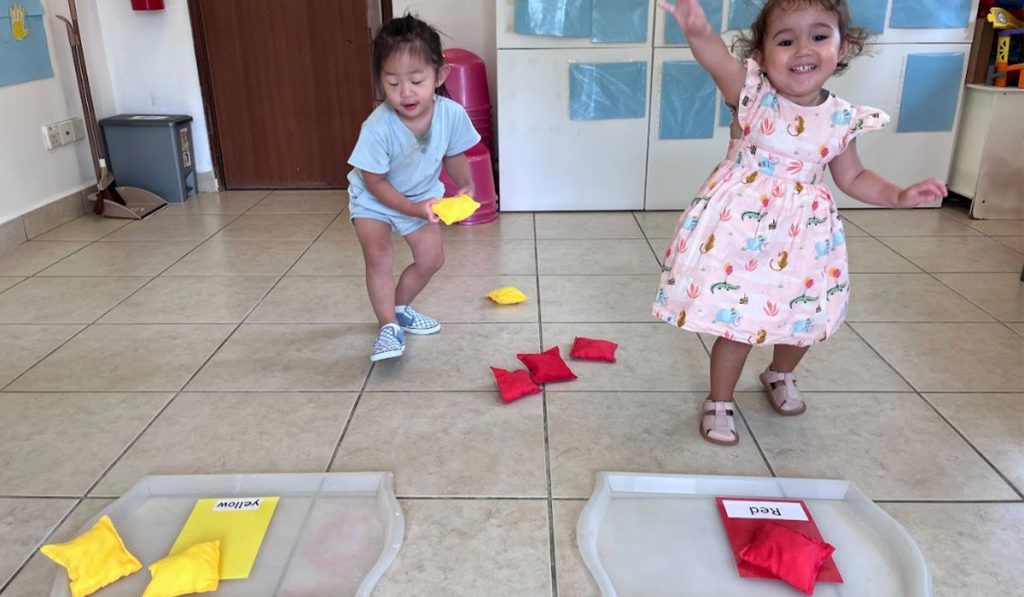
Do you want your child to develop a love for learning, as well as critical thinking and problem-solving skills that will stay with them for a lifetime? With our small teacher-to-student ratio and individualised lesson plans, Heartfield Kindergarten may just be the place for them.
At Heartfield, we nurture your children to become lifelong critical thinkers. Developed with a dash of creativity, our specially-designed curriculum helps our students to develop logic and problem-solving skills that helps them succeed in the future.
To build confidence and tenacity in our students, we focus on the process of learning, rather than performance alone (i.e. how they are solving the maths problem versus just getting the right answer). This allows our educators to analyse each child’s thinking so that they can guide him or her forward.
Through our lenses, learning is a process — a form of experimentation, and a way to think and apply knowledge. Like any science experiment, mistakes and missteps are part of the course. By applying this philosophy, we make education relevant, fun, and integrated across different disciplines.
From a social-emotional perspective, our approach helps kids not to feel stressed about getting the right answer. Instead, they’re encouraged to use their meta-cognitive skills to figure out where their solution went wrong and how to fix it.
In short, Heartfield is dedicated to fostering self-analysis skills that will last a lifetime. This is done with the hope that by the time your child reaches “big school,” they will continue to use problem-solving and reasoning skills in a self-motivated and confident manner.
Call us at tel: +65 6835 2354, email: info@HeartfieldKindergarten.com or visit our contact page for details.
